Leading Change: Quality and Standards in Health and Social Care NHS
VerifiedAdded on 2023/06/17
|9
|413
|358
Report
AI Summary
This report examines quality and standards within health and social care settings, particularly focusing on the NHS. It details the roles of stakeholders in maintaining quality, the involvement of external agencies in setting standards, and the negative impacts of poor quality services, including reputational damage and funding disruption. The report outlines methods for evaluating the quality of service provision, such as patient experience, timeliness of care, and data transparency. It also discusses approaches to implementing quality systems, including reflective practices and benchmarking, while acknowledging barriers like the lack of proper implementation of documented procedures. Key areas explored include measuring quality through patient experience and care effectiveness, and addressing challenges in delivering consistent quality in health and social care services.
1 out of 9

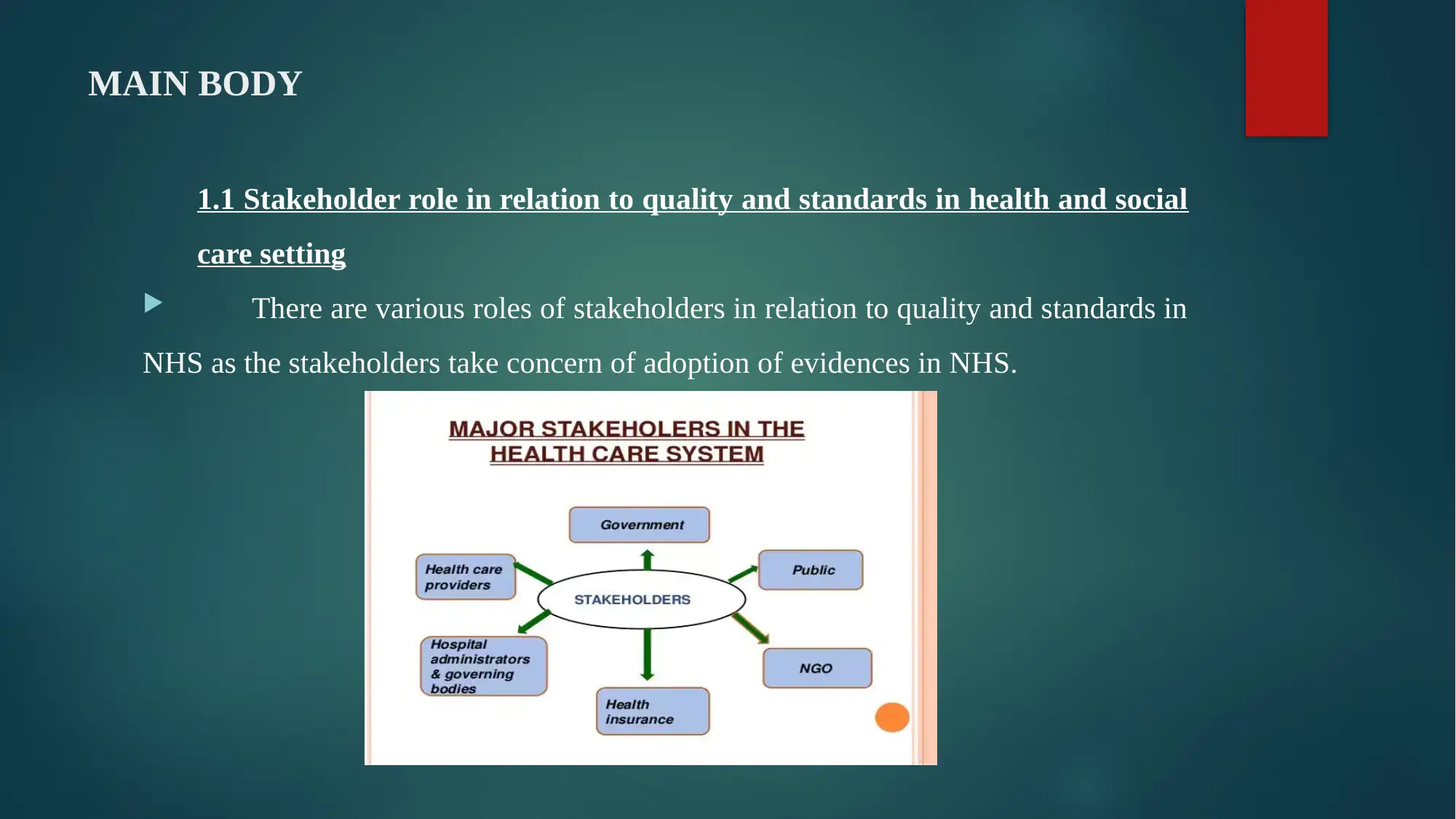


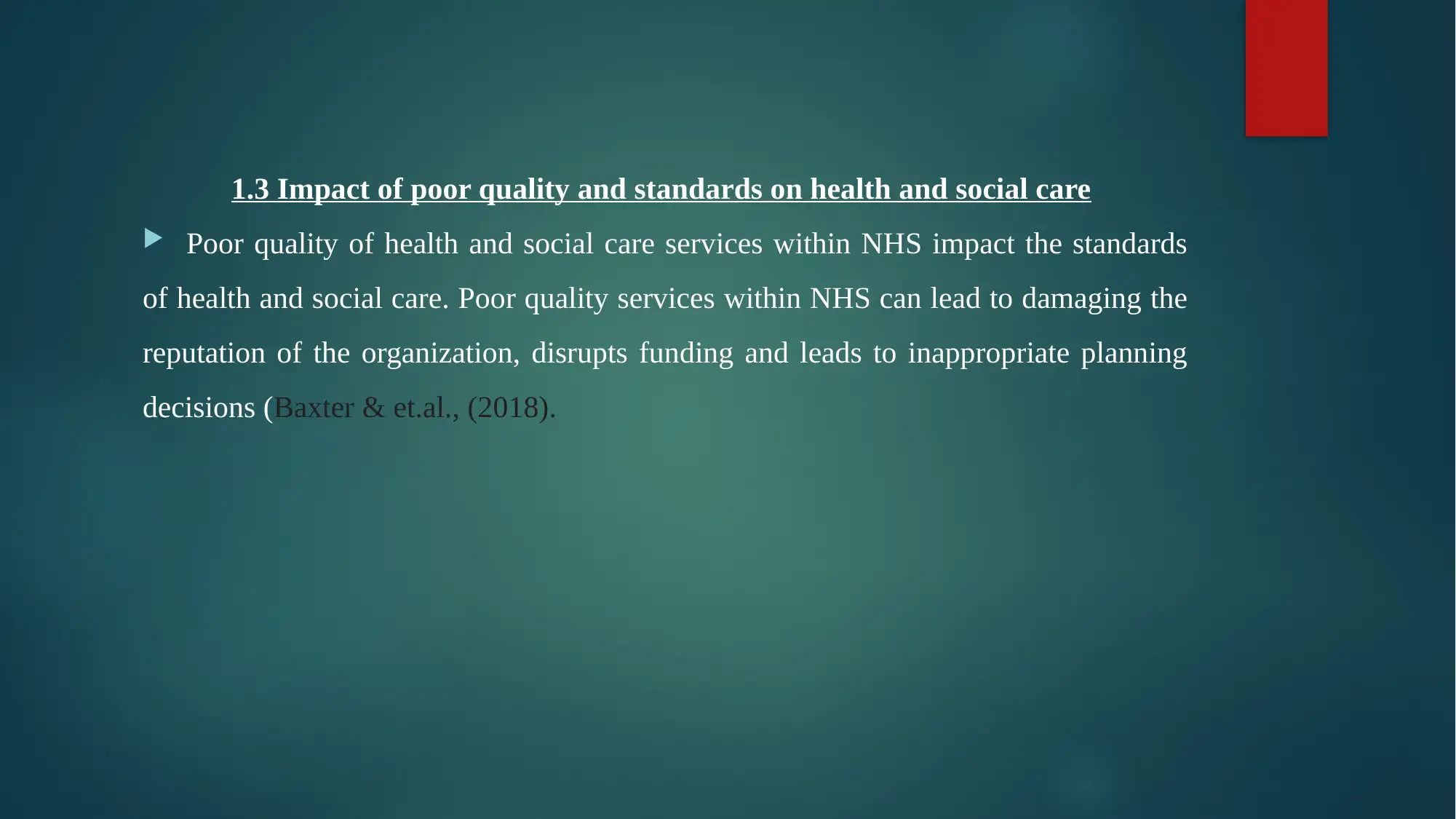
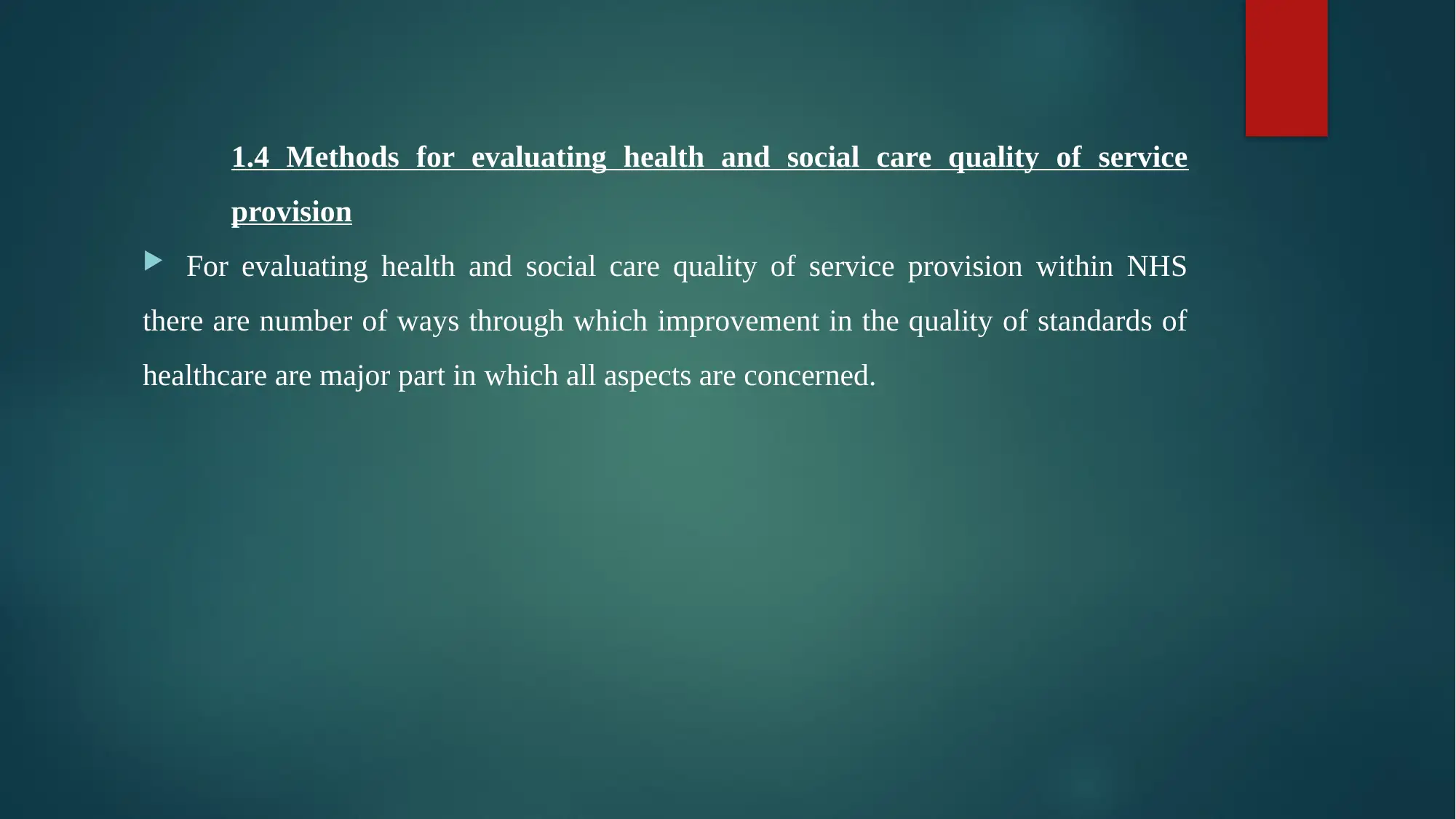
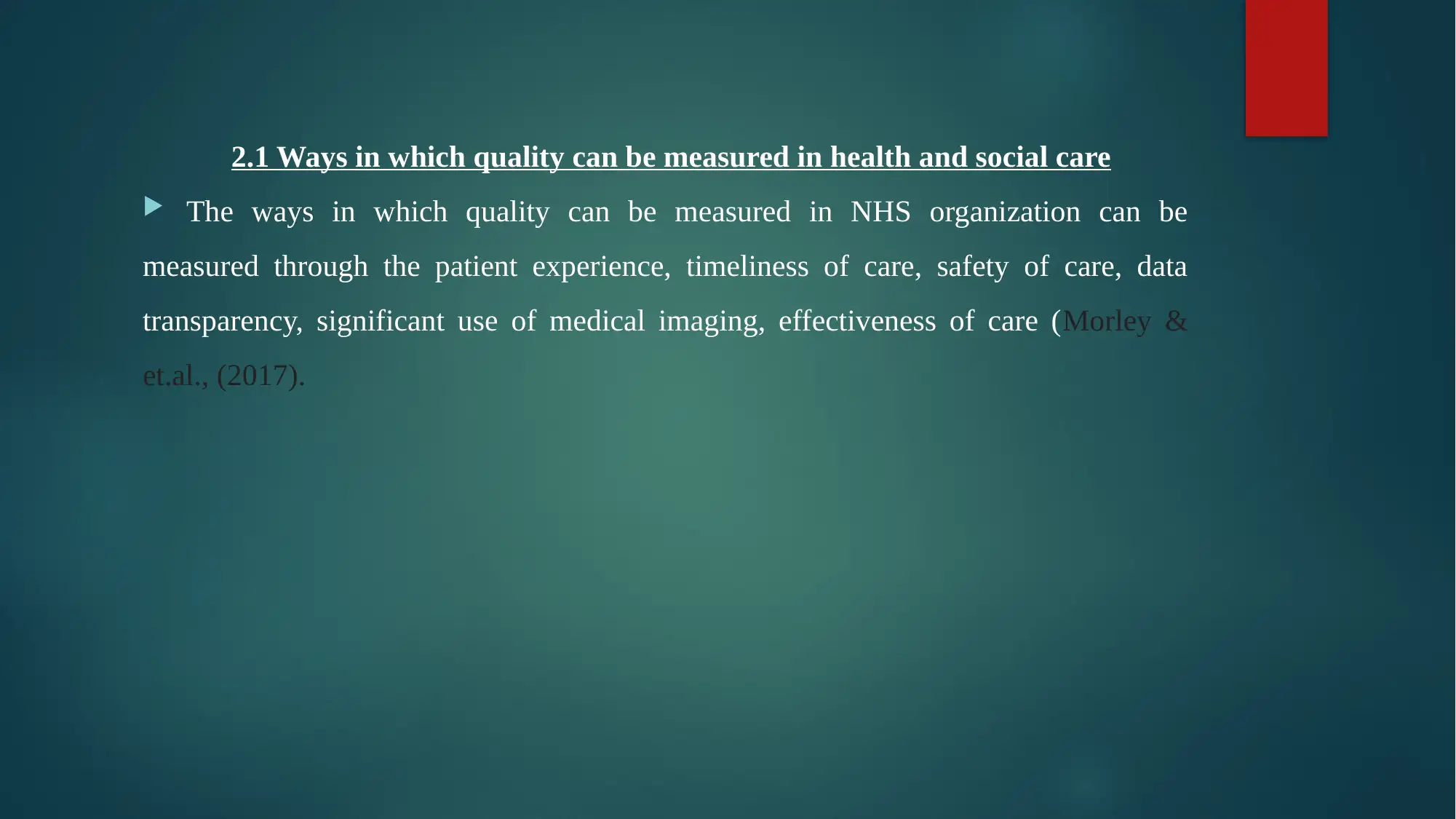

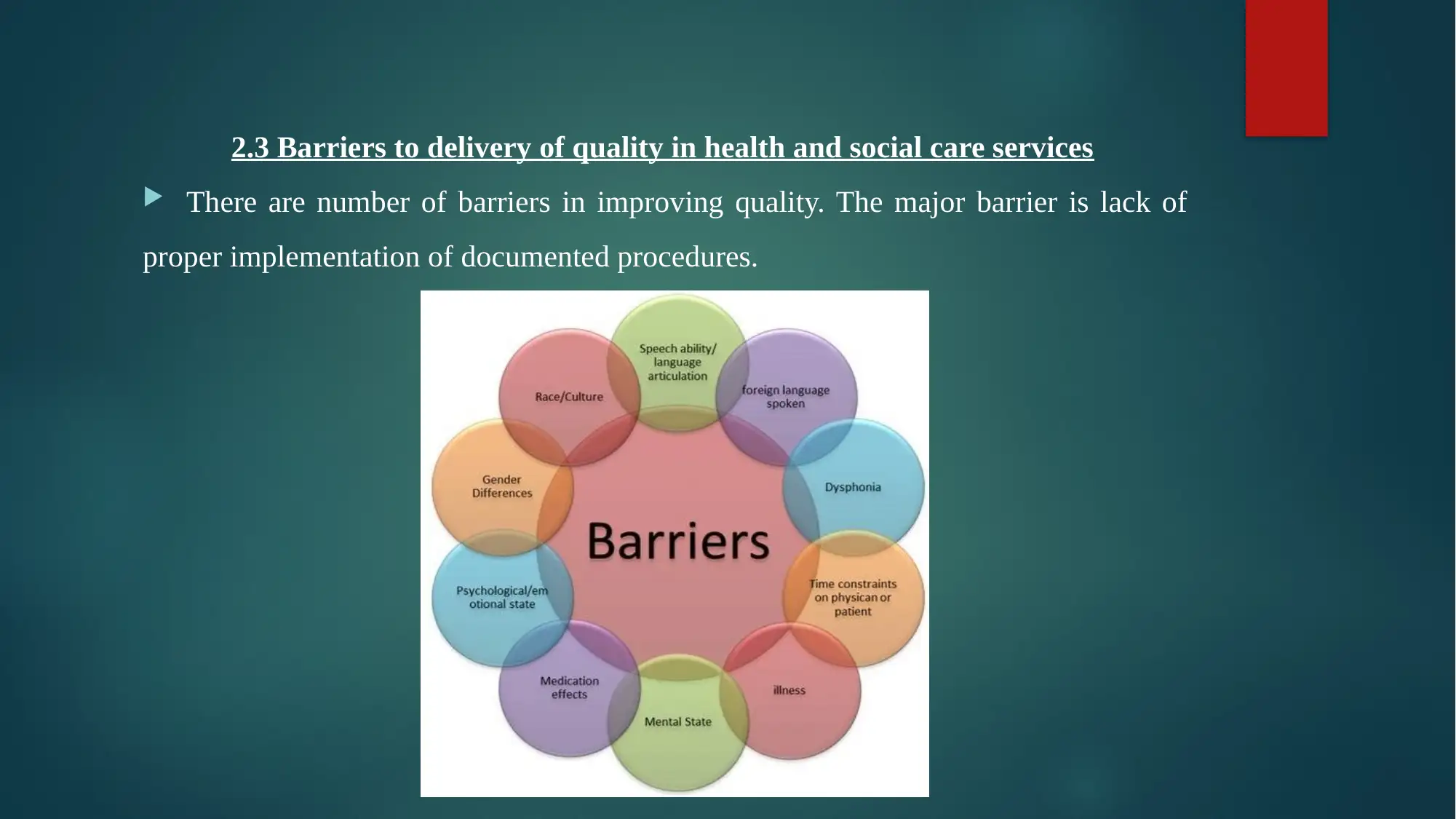






![[object Object]](/_next/static/media/star-bottom.7253800d.svg)